

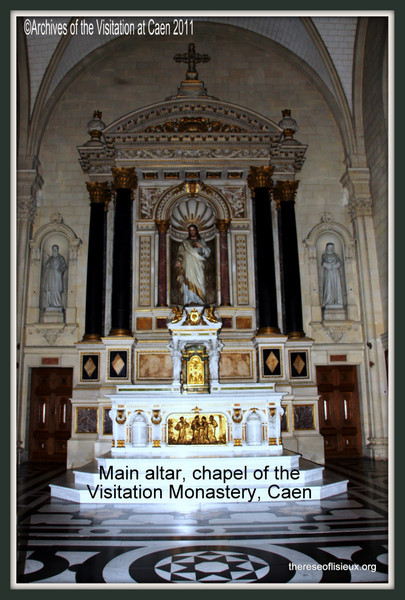
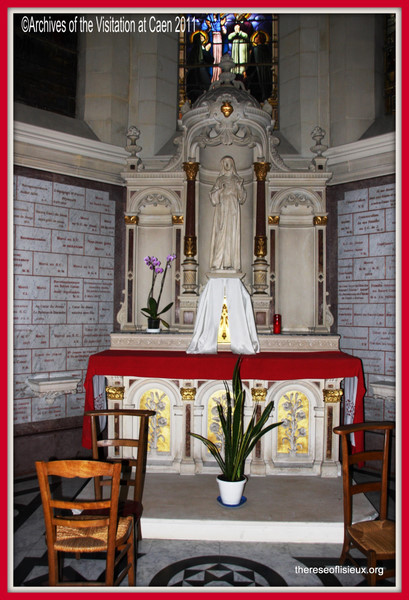
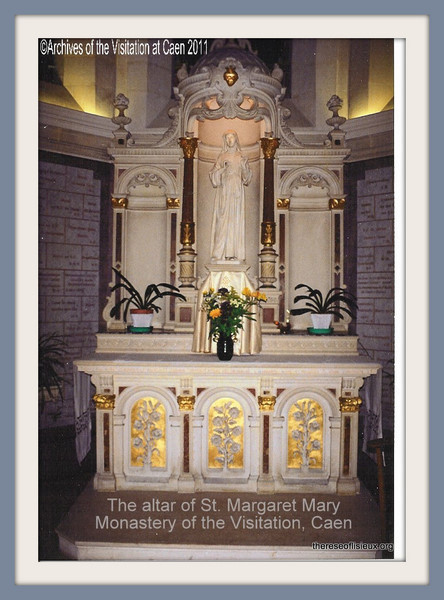
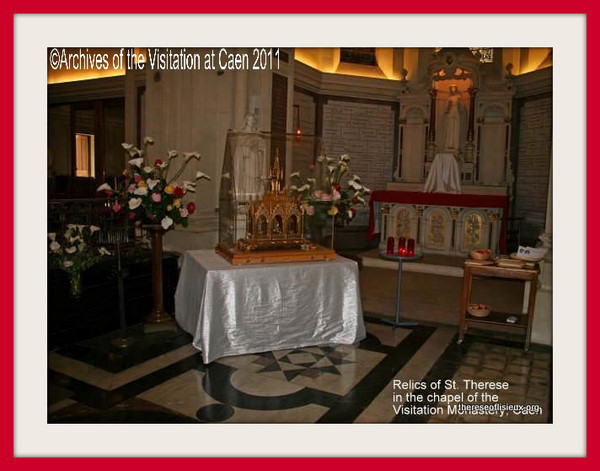
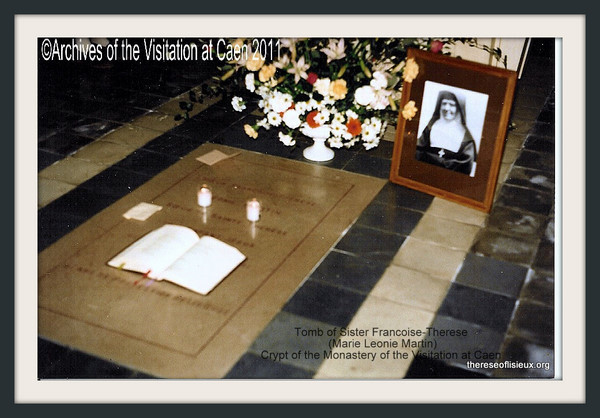
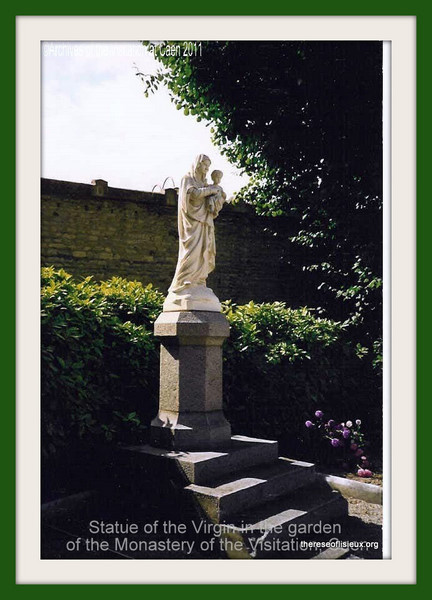
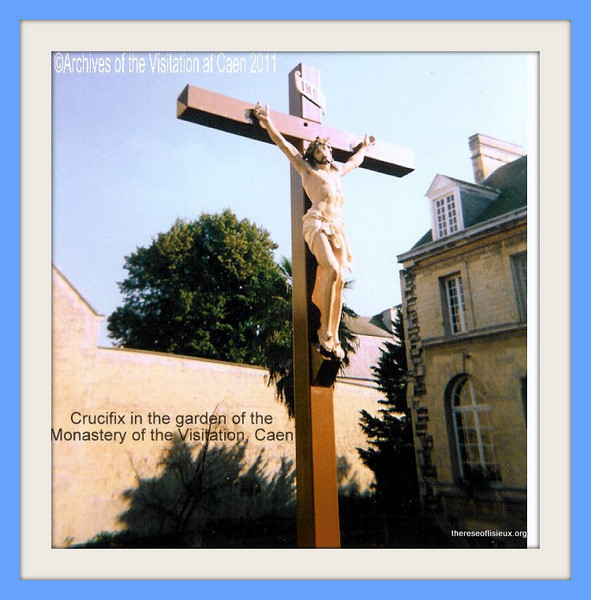
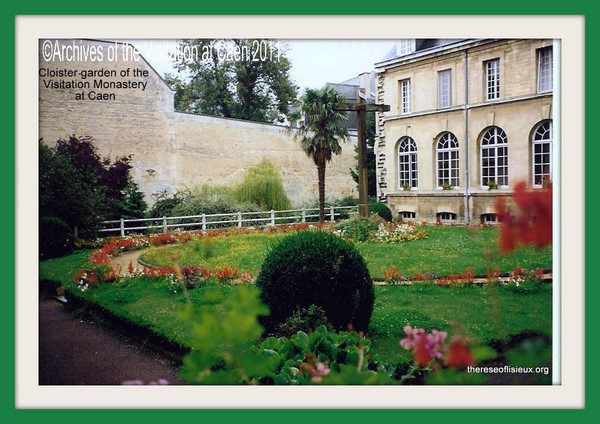
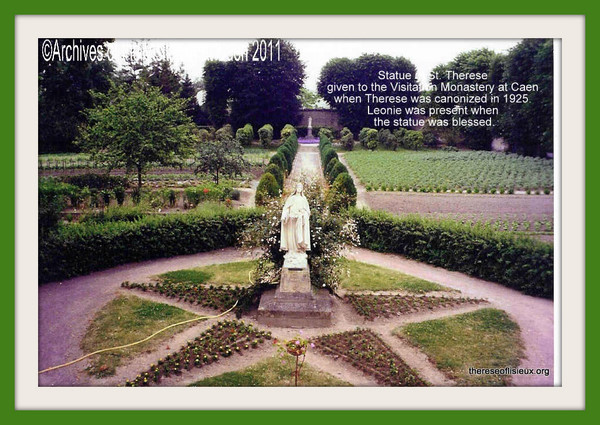
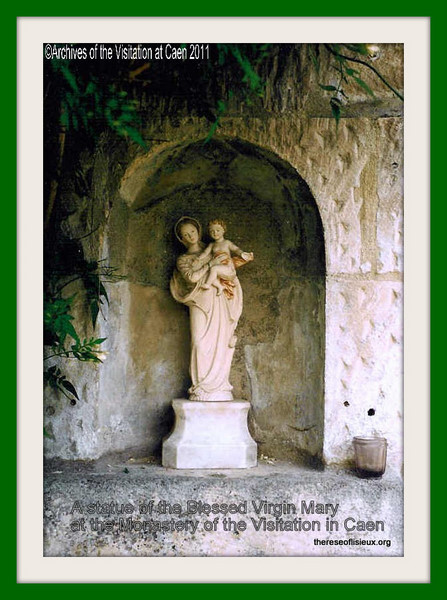
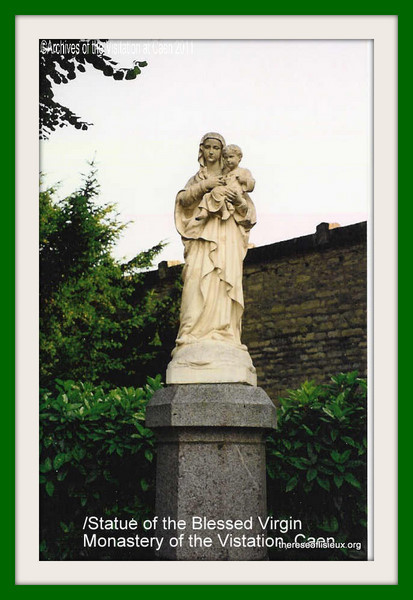
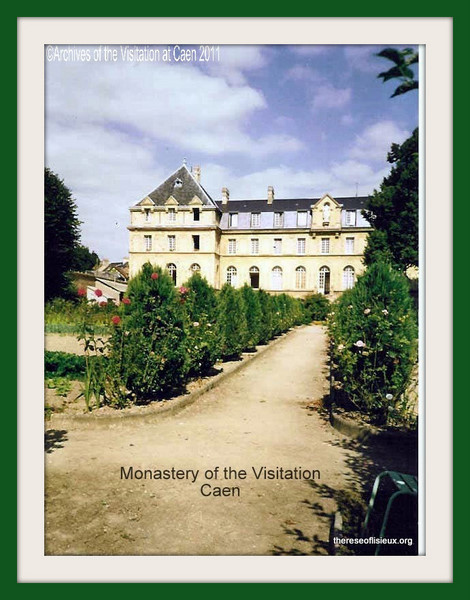


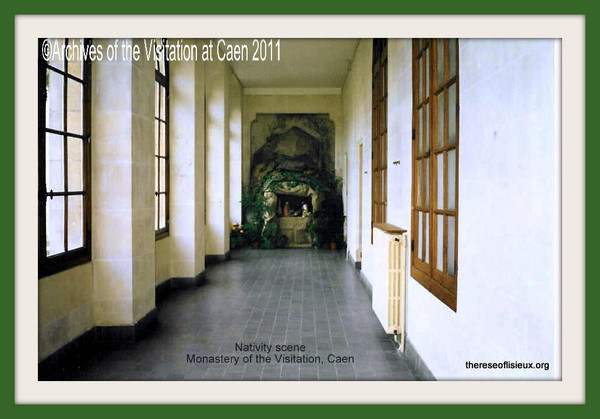
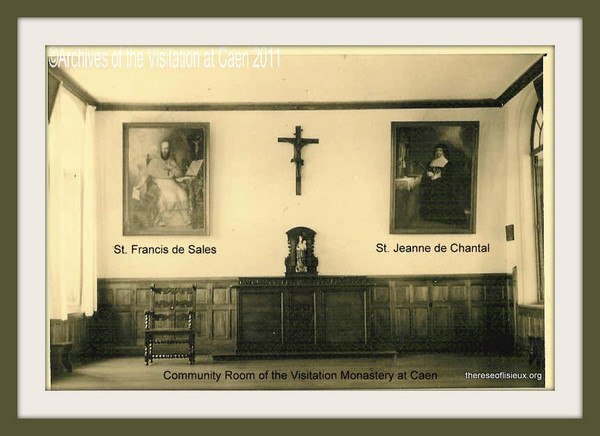
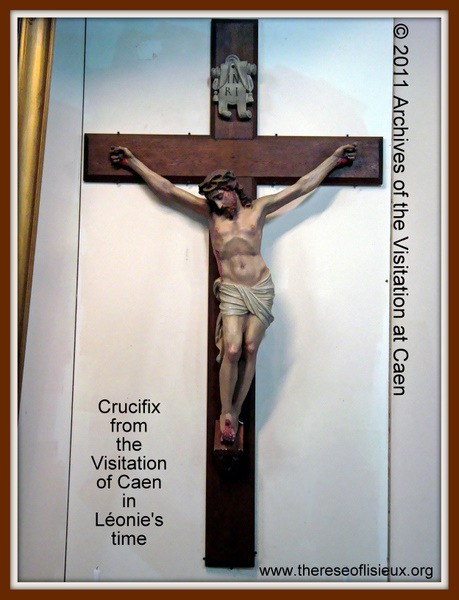

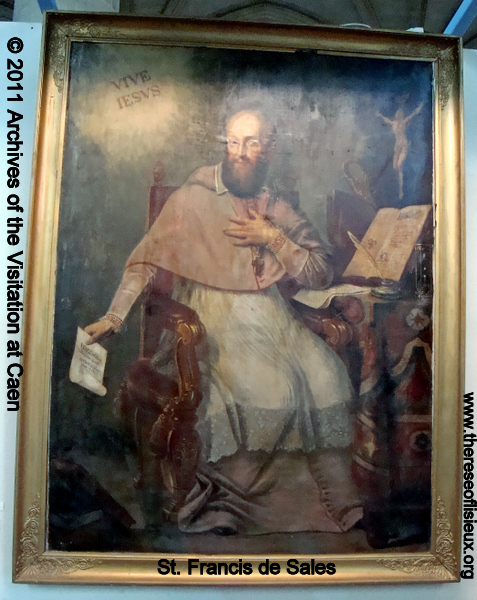
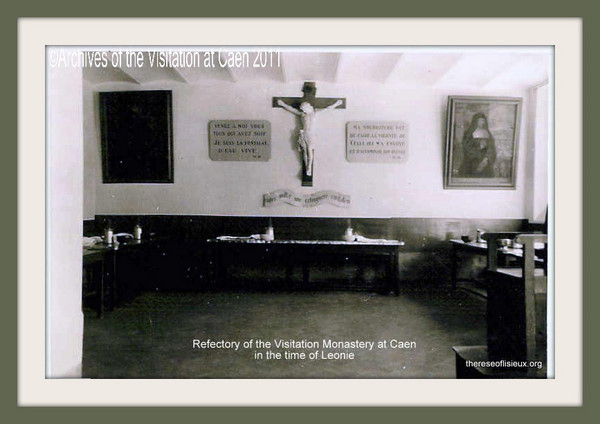
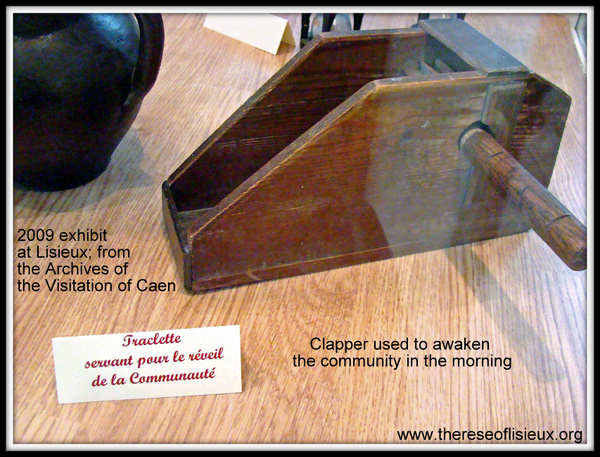

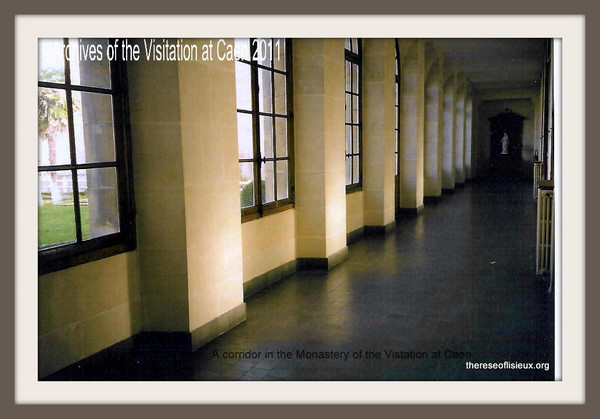
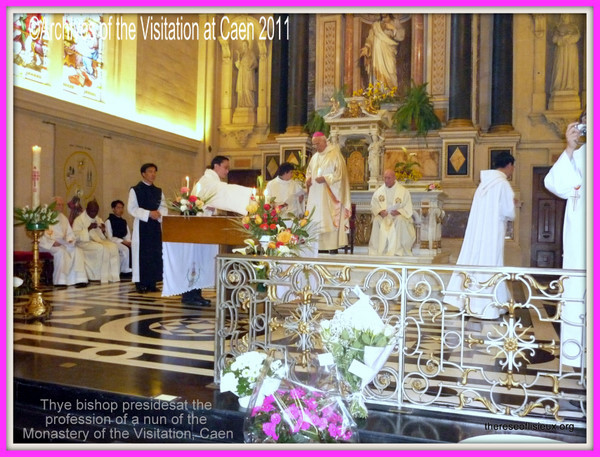
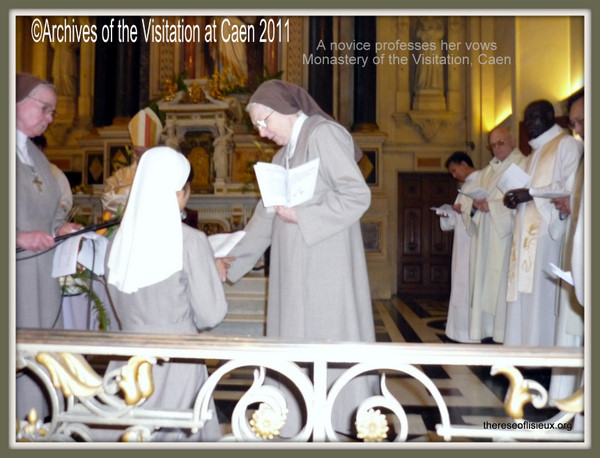
A disciple of the way of confidence and love
paintingofvisitation_wm-1.jpg
vitrail_wm-1.jpg
mainaltar_wm-1.jpg
altarstmargaretmary_wm-1.jpg
altarvisitationcaen_wm-1.jpg
reliquarydethereseinvisitationchapel_wm-1.jpg
tombeleonie_wm-1.jpg
visitationstatuemary_wm-1.jpg
crucifixcloisteryard_wm-1.jpg
preau_wm-1.jpg
statuedetheresevisitation_wm-1.jpg
statuemarynichevisitationcaen_wm-1.jpg
statueofthevirgin_wm-1.jpg
visitationcaengarden_wm-1.jpg
cloister_edited-1.jpg
building_edited-1.jpg
visitationhallwaycreche_wm-1.jpg
largerefectory_wm-1.jpg
crucifixvisitation2_edited-1.jpg
dechantalvisitation_edited.jpg
fdesalesvisleonie_edited.jpg
refectory_wm-1.jpg
clapper_edited-1.jpg
theresepeugheol_edited-1.jpg
visitationhallway_wm-1.jpg
bishopprofession_wm-1.jpg
novicevows_wm-1.jpg
Léonie Martin, the sister of St. Thérèse of Lisieux, became Sister Françoise-Thérèse of the Monastery of the Visitation at Caen in northern France. Léonie led a challenging life: ill from childhood; abused by a maidservant; expelled from school; isolated within her family. She tried religious life three times before she succeeded: in 1899, at the age of 35, she entered definitively the Monastery of the Visitation at Caen, where she died in 1941 at the age of 78.
How did the troubled child and unhappy teenager turn into the sister everyone remembered as so kind, so serene, and so happy that they could not believe she had had a difficult childhood? As a laywoman, Léonie lived at the margins of her family and her society. She found Christ there and made him the center and the source of her life. She discovered God within herself, in her woundedness, and she became the first disciple of Thérèse's "way of confidence and love."
After her death, Léonie was almost forgotten for a long time. But, about 1960, the nuns of her monastery began to receive letters from all over the world asking them to pray that Léonie might obtain graces for those who wrote. Many of these letters came from the parents of special children, from families in conflict, and from persons who, like Léonie, struggle to find and to fulfill their vocations. These were followed by letters of thanksgiving. Pilgrims come to pray at her tomb, to ask for graces and to give thanks. Now she is being considered for beatifcation. Mgr Jean-Claude Boulanger, bishop of Bayeux-Lisieux, the diocese where Léonie lived most of her life and where she died, has granted the imprimatur for a prayer asking that Léonie might be declared "venerable" (that is, declared to have practced heroic virtue).
Léonie's mission is to draw souls, especially the wounded, the broken, and those who have not found a place in the world, to God. Invite her to accompany you and to lead you to surrender yourself, as she did, to God's "consuming and transforming love."